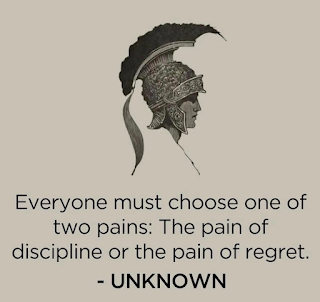Hari om everyone,
Here's a synopsis of our class this week. Class started with a short meditation and Geeta Chanting. They are practicing Chapter 4 very well.
The Kyun Kyun (QQ - Quirky Question) of the day was - I am HUGE, but I can be contained within a speck. What am I?
Our class was stumped with this question. We shared the answer - I'm a tree! Whichever tree, the entire tree is contained inside its tiny seed!! The seed of the biggest Banyan tree is just a small dot-sized!
We asked a bonus question: Which tree can I hold in my hand? The class was quick this time. They said, a 'palm' tree! Yes, it is :).
Why did we talk about seeds and trees? We correlated it with seeds of thoughts... At Bala Vihar, we sow the seeds of thoughts. They are small in size but have the potential to grow big just like the trees. Just as the real seeds, the seeds of thought too, need some tending. A seed thrown on rocks or scorched in the Sun will not sprout/grow. But seeds scattered in fertile soil will sprout, hold ground, root well, and grow strong! Similarly, the little seeds of thoughts sown at Bala Vihar WILL grow big and strong, if the soil (our mind) is receptive and fertile! If not, they will scorch and be forgotten. It is entirely up to the listeners whether they let weeds or good seeds grow!! We are sure our alert students have fertile minds that will allow these seeds to grow well :).
The 1st ShaTkam (chapters 1-6) of the Geeta spoke about the nature of jeeva (beings). Today, we were summarizing the 2nd ShaTkam (chapters 7-12). This portion of the text speaks about the nature of the Lord.
Krishna spoke about the Nature of Brahman. He is Himself that pure Brahman who had taken the form of the Krishna to protect righteousness in the world.
We discussed the scenarios under which we pray to the Lord. Our students summarized - we pray when we want
- good grades
- success
- when we are sick
- when we are in trouble
- when we want money, etc
That's exactly what Krishna said to Arjuna too! There are 4 types of seekers - aarta (one in distress), arthaarti (seeker of wealth), jignaasu (seeker of knowledge) and jnaani (a person who already knows).
We can pray to the Lord in whatever capacity or method. Our culture is so beautiful that it gives us full freedom to choose what we want to do.
At this time, we discussed what freedom really is. Does freedom mean we can do whateeeeever we want to do?! Not really! This statement says it well -
What does this mean?! It means that we can make a choice and it may end up being the wrong one. That's okay. But choosing to do something that we ALREADY KNOW is wrong, is NOT freedom!! That's EXPLOITATION of freedom. We need to know ethics to make the right choices.
We are given the freedom to make logical, empathetic, and ethical choices. Such choices WILL be dhaarmic!
Then Krishna had explained to Arjuna about the concept of birth and rebirth. To explain that, we discussed the theory of Karma. We also discussed praarabdha (fate) and puruShaartha (free will). It is due to our Karma and Karma-phala (fruit of our actions) that we are born again and again.
To cut this cycle of birth and rebirth, there are many ways. One of them is - our thoughts during our last breath. If we can think of the Lord at that time, there will be no rebirth. Well then, that's so easy! Isn't it? Not really! Our thoughts are going to be in line with the way we live our lives. At the last minute, we can't think of the Lord if we have thought of only food all our lives :). So, with practice, we have to train ourselves to be dhaarmic.
We briefly touched upon the very definition of 'dharma'. It is one of those words that is not translatable into any other language. Dharma is not just duty, responsibility, or ethics - as we use it! It is much more than that!
The dharma of water is to flow and have sapidity. The dharma of fire is to give warmth and light. So, the dharma of an object is what defines it! In that sense, what is the dharma of us humans?! What sets us apart from animals? Our dharma as humans is to realize that we are an entity of happiness (aananda swaroopa) and not the little suffering egos that we identify ourselves with. We will discuss this further in the next class.
We ended the class with our 'Unique Statement Review' from the students.
For now, we will leave you with these thoughts -
Hope we all make the right choice!
See you next week.
Regards,
Rashmi and Sirisha.
Rashmi and Sirisha.

